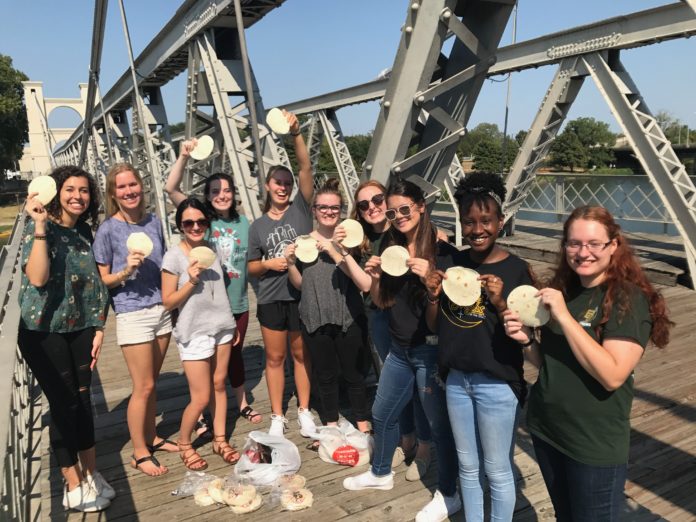By Corrie Coleman | Reporter
Baylor Third Culture Kids, founded nearly a year ago, is an organization that provides community and support for students who have lived overseas. Through events and meetings, Baylor Third Culture Kids helps students adjust to life in the United States and at Baylor.
In August 2015, junior Kate Hambly moved from Kuala Lumpur, Malaysia to Waco. Although her parents are American, Hambly lived most of her life in Southeast Asia. The transition from Malaysian culture to American culture was initially challenging for Hambly.
“I had a major panic attack at the Dairy Queen on LaSalle with my mom the day before move in,” Hambly said. “I was like, ‘I will never learn this campus. It’s too big. It’s super confusing. I will never make friends.’”
As the semester began, Hambly realized few people on campus could relate to her experiences of living overseas as an American. Even multicultural organizations were not targeted for people who had the same background as her.
“It was hard not having a niche group for kids who had experiences like me,” Hambly said. “I adjusted and people were super friendly. There just wasn’t a perfect place for me.”
At the end of Hambly’s sophomore year, she founded Baylor Third Culture Kids, an organization that gives an opportunity to students who share her experiences and struggles to come together.
“Third Culture Kids,” a term coined in the 1950s, describes those who have grown up in a culture other than their parents’. Their first culture is that of their parents and the second is the culture they live in. The third culture is the amalgamation of the two. Hambly said third culture kids often feel a connection to both cultures while not completely fitting in with either.
Baylor Third Culture Kids offers a space for these students to find community and connection in college. Hambly hopes the organization provides third culture kids with friends who share their experiences and can help them navigate American and Baylor culture. Baylor Third Culture Kids hosts monthly meetings as well as outings to Magnolia Silos, bowling or the farmers market.
Baylor communication sciences and disorders professor Marnie Abrahams is heavily involved with Baylor Third Culture Kids. Abrahams believes community with other third culture kids can be incredibly beneficial for college students.
“TCK’s [Third Culture Kids] not only have shared experiences, they also sometimes have the same kinds of needs,” Abrahams said. “Having that community to be able to share fond memories and reflect on positive experiences, but also to process the things that they uniquely struggle with is important.”
Abrahams explained that third culture kids often feel misunderstood by those around them. Having a community that can understand their experiences is crucial to processing their past.
“It matters when you meet someone who gets you. Because, while third culture kids often understand other people very easily, they are rarely understood by other people,” Abrahams said. “It means a lot to a person to be understood.”
Abrahams said she believes that because of their upbringing, third culture kids are uniquely equipped to promote diversity and inclusivity.
“TCK’s very often are already ready to see things from different people’s perspectives. They’re ready to embrace people who are different. They’re ready to listen to others,” Abrahams said. “TCK’s tend to be very big-hearted. They tend to be very open-minded. They tend to seek out that diversity of experience.”
Hambly said she hopes Baylor Third Culture Kids can provide students with a feeling of belonging and acceptance and a place where they feel known.
“Baylor is my home now,” Hambly said. “And I hope that it can be for other people.”






